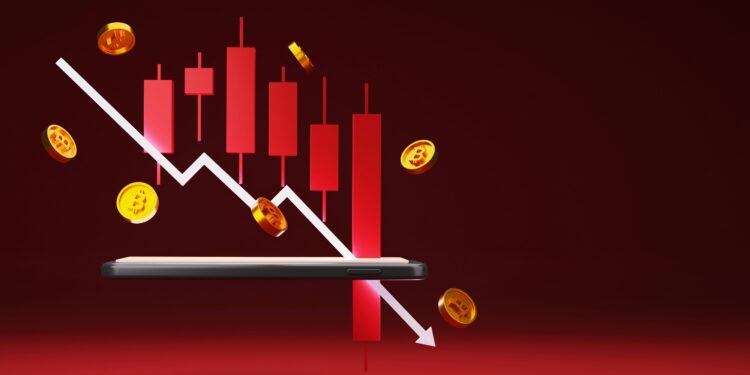The global stock market rout is likely to affect the recapitalization efforts of Nigerian banks, according to findings from inclusifund Research. On Monday, global financial markets experienced a massive sell-off in Asia, wiping out gains made in 2024. U.S. futures also fell ahead of the market opening, continuing last week’s downward trend. The cryptocurrency market dropped significantly, with Bitcoin falling from $70,000 to $50,000. This sell-off has impacted various asset classes, including bonds, as investors brace for a possible U.S. recession.
Challenges for Nigerian Banks
Nigerian banks, expected to raise over N4 trillion in the next 18 months, face a precarious situation due to the global market turmoil. While these banks mainly rely on local investors, foreign participation is crucial for meeting their fundraising targets. Many banks have launched international roadshows and are actively engaging with potential investors to mitigate concerns. However, the fear of global market contagion is growing, making it essential for Nigerian banks to reassure and maintain investor confidence.
Investor Concerns
The recent sell-off has sparked widespread concern among investors, primarily due to fears of a potential U.S. recession.
- Jobs Report: The latest U.S. jobs report showed slower-than-expected job growth, raising alarms about the economic outlook. In July, employers added only 114,000 jobs, significantly lower than the expected 185,000. The jobless rate rose to 4.3%, the highest since October 2021, fueling concerns about economic activity slowing faster than anticipated. This led to a plunge in stock markets, with the Dow Jones dropping nearly 1,000 points and the Nasdaq Composite entering “correction” territory.
- Federal Reserve Rate Cut: Adding to the uncertainty, the Federal Reserve announced plans to cut interest rates by 25 basis points, bringing the federal funds rate down to 5.0%-5.25%. While rate cuts are typically seen as a stimulus measure, this announcement has been met with mixed reactions.
- Warren Buffet’s Share Sales: Renowned investor Warren Buffett’s strategic share sales further fueled investor fears. Berkshire Hathaway reduced its stakes in major companies like Apple Inc. and Chevron Corp., and exited its position in HP Inc. These adjustments by Buffett’s firm have contributed to market uncertainty.
Implications for Nigerian Bank Recapitalization
The global sell-offs have significant implications for Nigeria’s bank recapitalization plans.
- Foreign Investor Wariness: Foreign investors are growing increasingly apprehensive about the Nigerian economy, particularly concerning government policies on taxing bank capital gains. The global economic turmoil adds to their concerns, likely causing delays in investment inflows into Nigeria.
- Investment Committee Caution: Investment committees are adopting a cautious approach, waiting to analyze more data before making decisions. This heightened wariness is likely to impact the timelines of bank recapitalization plans, which are often structured around specific deadlines.
- Monitoring the Situation: Some bank sources indicated they are closely monitoring the situation, though they remain cautiously optimistic about meeting their targets.
The ongoing global market sell-offs present a significant challenge to Nigerian banks’ efforts to recapitalize. The banks must navigate these turbulent times by maintaining investor confidence and adapting to the evolving financial landscape.


















